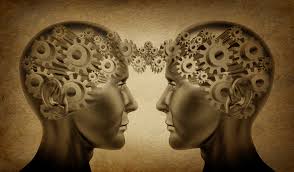
Social cognition in action
In this option we will explore some areas of social cognition in action in the real world. rather than focus on one specific area, we will explore a range of research areas within and beyond social cognition in action.
The first lecture will lay the ground work with the basic theories and foundations of social cognition. We will explore social inference, heuristics, attitudes, stereotypes, discrimination and prejudice with a particular view to how media affects these things. Lecture 2 will then move beyond social cognition, looking at the relationship between body and brain, delving into newer theories of embodied cognition. Lecture 3 will explore the role of movement in our everyday lives and how the way in which we move with those around us affects our personal relationships, group dynamics and may even lead to a reduction in prejudice or an increase in conformity to commit aggressive acts. Lecture 4 will detail the research around autism and theory of mind (or perspective taking), with a view to exploring if and how these findings generalise to hon human agents, and what findings in this area might mean for traditional accounts of autism. Lecture 5 will finally focus on Games and social cognition, this session will be split into two smaller lectures, one on digital games and one on analog or board games. The first will explore a growing field of work showing the overlap between autism and modern table top gaming, exploring how this area dispels some common autism myths and how games and gamification might be a naturalistic alternative to traditional autism interventions. The second will explore the research on the social consequences of video games, exploring well publicised accounts of whether violent and sexist portrayals in video games affects those who play as well as research suggesting that games may have more pro-social uses.
Lecture 1 - Social cognition in action
Key background and concepts
Lecture 2 - Beyond social cognition
Embodied and enclothed cognition
Lecture 3 - Synchrony and social cognition
How moving together binds us together
Lecture 4 - Seeing more than human
Autism, theory of mind and anthropomorphism
Lecture 5 – Games and social cognition
5.1 - Board Games as a tool to study social cognition in autism
5.2 - Video games & Social cognition, the good, the bad and the unexpected
Readings
Key open access research papers specific to each topic will be recommended in each lecture, but below are some relevant books if you want to get a head start.
Fiske, S. T. (1991). Social cognition.
Daniel, K. (2017). Thinking, fast and slow.
McNeill, W. H. (1997). Keeping together in time. Harvard University Press.
Barrett, L. (2011). Beyond the brain: How body and environment shape animal and human minds. Princeton University Press.
Kowert, R. (Ed.). (2019). Video games and well-being: press start. Springer Nature.
Social cognition in action
In this option we will explore some areas of social cognition in action in the real world. rather than focus on one specific area, we will explore a range of research areas within and beyond social cognition in action.
The first lecture will lay the ground work with the basic theories and foundations of social cognition. We will explore social inference, heuristics, attitudes, stereotypes, discrimination and prejudice with a particular view to how media affects these things. Lecture 2 will then move beyond social cognition, looking at the relationship between body and brain, delving into newer theories of embodied cognition. Lecture 3 will explore the role of movement in our everyday lives and how the way in which we move with those around us affects our personal relationships, group dynamics and may even lead to a reduction in prejudice or an increase in conformity to commit aggressive acts. Lecture 4 will detail the research around autism and theory of mind (or perspective taking), with a view to exploring if and how these findings generalise to hon human agents, and what findings in this area might mean for traditional accounts of autism. Lecture 5 will finally focus on Games and social cognition, this session will be split into two smaller lectures, one on digital games and one on analog or board games. The first will explore a growing field of work showing the overlap between autism and modern table top gaming, exploring how this area dispels some common autism myths and how games and gamification might be a naturalistic alternative to traditional autism interventions. The second will explore the research on the social consequences of video games, exploring well publicised accounts of whether violent and sexist portrayals in video games affects those who play as well as research suggesting that games may have more pro-social uses.
Lecture 1 - Social cognition in action
Key background and concepts
Lecture 2 - Beyond social cognition
Embodied and enclothed cognition
Lecture 3 - Synchrony and social cognition
How moving together binds us together
Lecture 4 - Seeing more than human
Autism, theory of mind and anthropomorphism
Lecture 5 – Games and social cognition
5.1 - Board Games as a tool to study social cognition in autism
5.2 - Video games & Social cognition, the good, the bad and the unexpected
Readings
Key open access research papers specific to each topic will be recommended in each lecture, but below are some relevant books if you want to get a head start.
Fiske, S. T. (1991). Social cognition.
Daniel, K. (2017). Thinking, fast and slow.
McNeill, W. H. (1997). Keeping together in time. Harvard University Press.
Barrett, L. (2011). Beyond the brain: How body and environment shape animal and human minds. Princeton University Press.
Kowert, R. (Ed.). (2019). Video games and well-being: press start. Springer Nature.